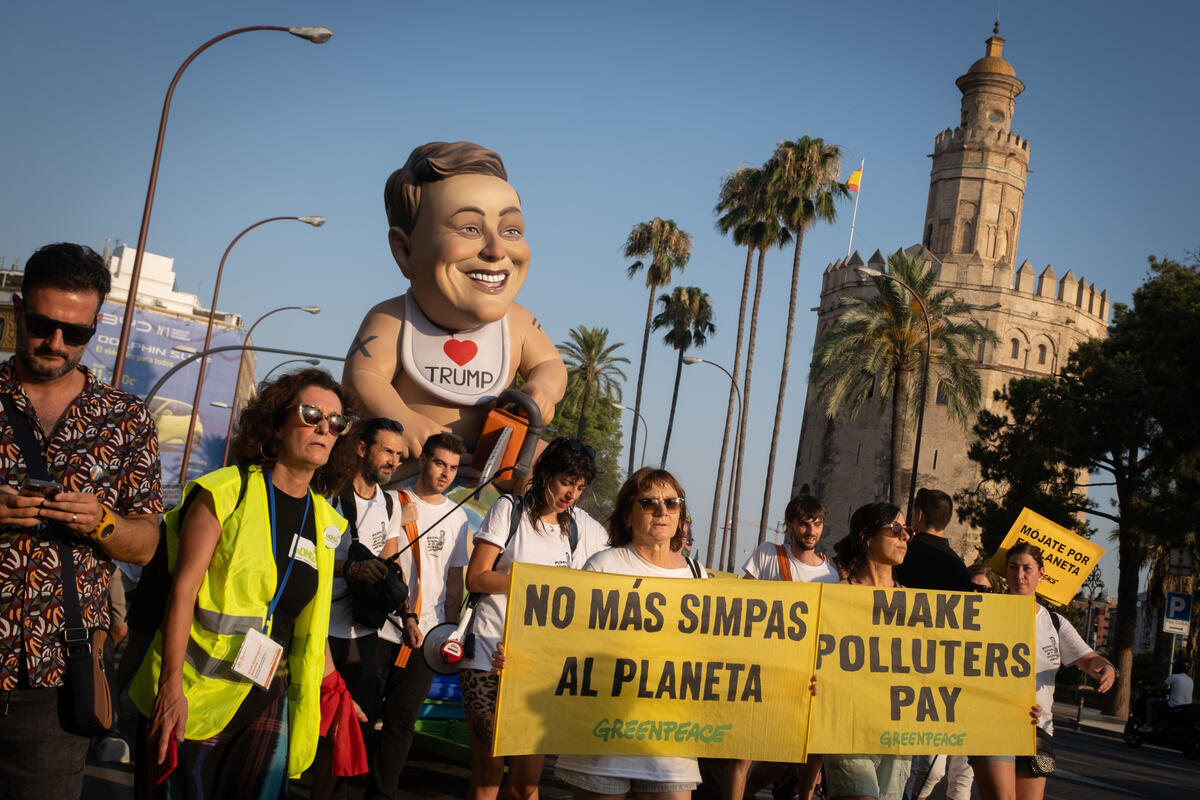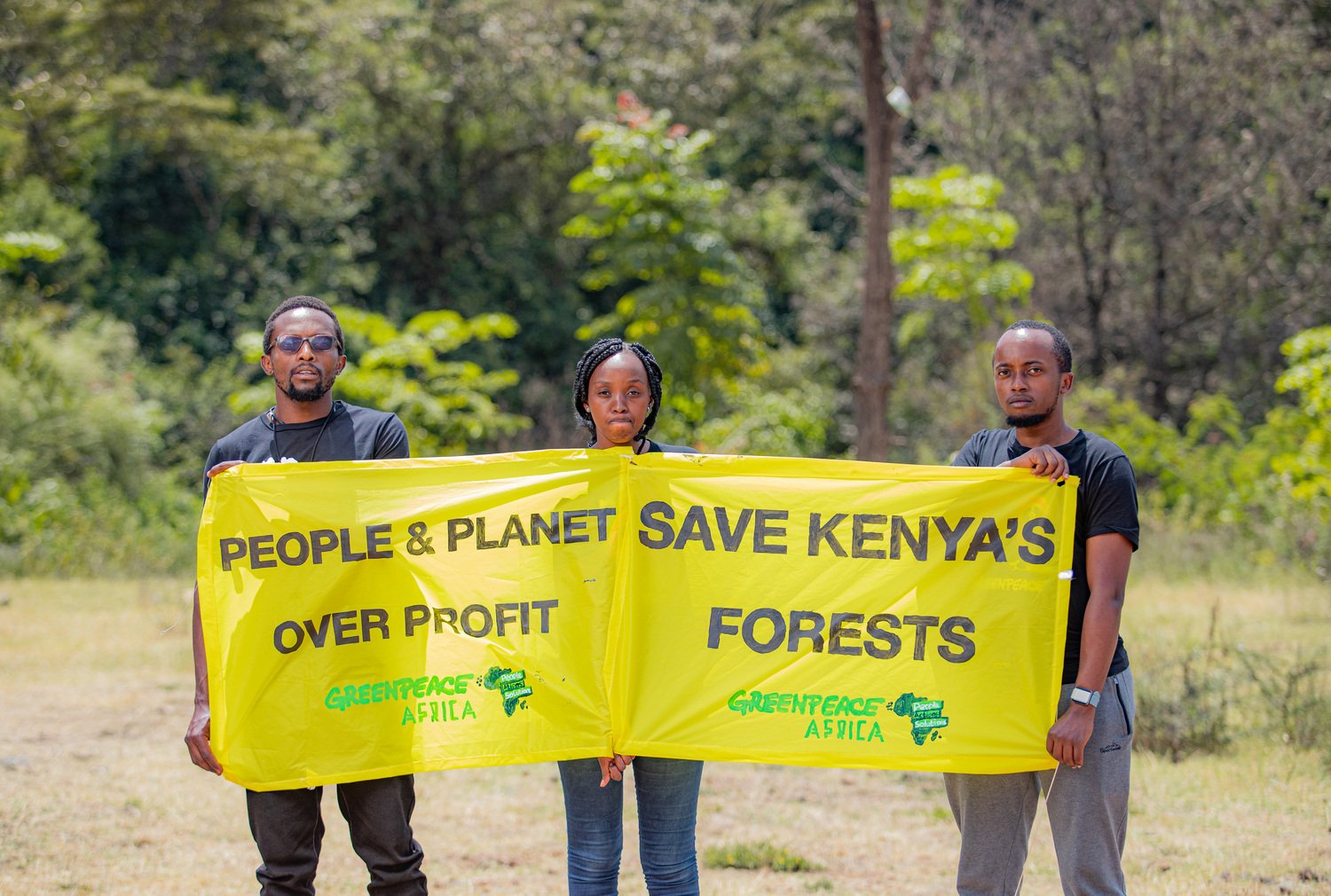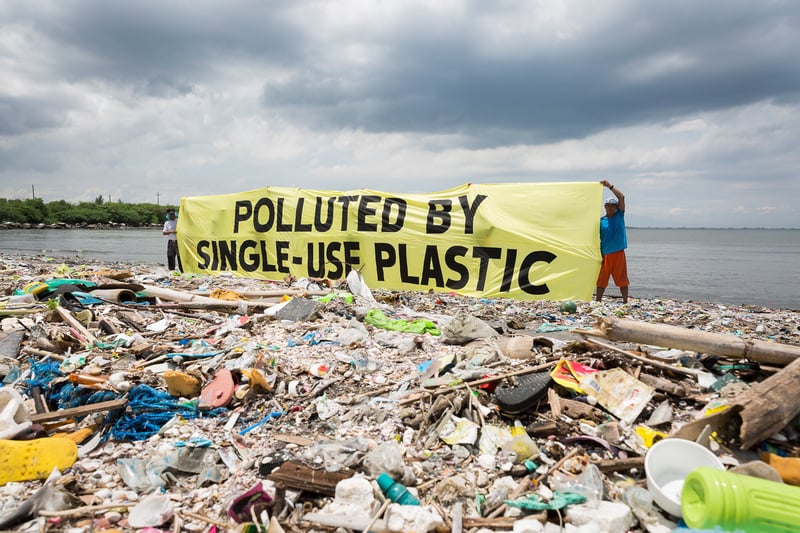Johannesburg, 13 January 2023 – New analysis commissioned by Greenpeace International shows that 1,040 private jets flew in and out of airports serving the Swiss mountain resort of Davos during the week of the 2022 World Economic Forum (WEF), causing CO2 emissions from private jets four times greater than an average week.
Melita Steele, Programme Director for Greenpeace Africa:
“The rich and powerful are swarming to Davos to discuss climate and inequality behind closed doors using the most unequal and polluting form of transport: private jets. While the climate crisis results in more droughts to hit the African continent, food prices are soaring, and floods and heatwaves wreak havoc in our cities, the people in private jets remain insulated from these impacts.”
The research, conducted by Dutch environmental consultancy CE Delft, found that the number of private jet flights to and from airports serving Davos doubled during the 2022 World Economic Forum meeting compared to average weeks, causing CO2 emissions equivalent to 350,000 average cars in the same time period.[1] The researchers attribute about every second flight to the meeting itself.
Of all these flights, 53% were short-haul flights below 750 km that could have easily been train or car trips, with 38% flying ultra-short distances of under 500 km. The shortest flight recorded was only 21 km. According to the analysis, countries with the highest number of arrivals and departures out of Davos airports included Germany, France and Italy.
The issue of private jets garnered global public attention last year after several public figures faced criticism for taking ultra-short trips by private jet. The analysis released by Greenpeace International comes days before political and business leaders head into Davos to attend the 2023 World Economic Forum, with its self-proclaimed goal of wanting to tackle climate change and other “ongoing crises” calling for “bold collective action”.
“Given that 80% of the world’s population has never even flown, but suffers from the consequences of climate-damaging aviation emissions, and that the WEF claims to be committed to the 1.5°C Paris Climate Target, this annual private jet bonanza is a distasteful masterclass in hypocrisy. Private jets must be consigned to history if we are to have a green, just and safe future for all. So-called world leaders must lead by example and ban private jets and useless short-haul flights,” added Steele.
Private jets are not regulated in the EU, even though they are the most polluting mode of transportation on the planet per passenger kilometre.[2] For the first time, in 2022, several EU countries spearheaded by France have started to push for an EU-wide regulation of private jet emissions.
ENDS
Notes
[1] The basis of the analysis by CE Delft is data on private jet flights to and from airports in the vicinity of Davos, including the airports of Zürich, Geneva, Altenrhein, Dübendorf, Samedan, Friedrichshafen, and EuroAirport Swiss. The data of private jet flights has been provided by aviation analytics company Cirium. To determine the number of flights during the week of the World Economic Forum 2022 (May 21 – 27), researchers compared the flights in the WEF week with the flights in the weeks before and after. The CO2 emissions of all flights in the WEF week were calculated using the Eurocontrol Small Emitters Tool.
[2] According to a study by Transport & Environment, private jets are 5 to 14 times more polluting than commercial planes (per passenger), and 50 times more polluting than trains. In 2018, 50% of all aviation emissions were caused by only 1% of the world’s population.
Contacts
Greenpeace Africa Press Desk: [email protected]
Chris Vlavianos,
Greenpeace Africa Communications
Officer: +2779 883 7036, [email protected]
Follow @greenpeacepress on Twitter for our latest international press releases



